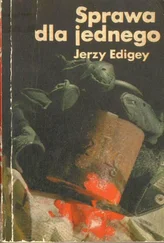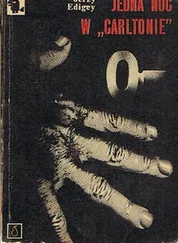“How’s business, Miss Małgorzata? How’s business today?” Mr. Swaczyna asked in a friendly, but at the same time thoroughly official, tone.
“There hasn’t been anyone yet. There hasn’t been a single client.”
“That’s not good.” Grand Master Swaczyna became concerned, and he put on such an air, executed such gestures, and spoke such that there was no way around it: Małgosia had no choice but to feel guilty. Even I felt guilty.
“Maybe this afternoon,” I said without conviction, “maybe things will pick up a bit this afternoon, when people start to go to the summer festival.”
“That’s not good.” Grand Master Swaczyna, immersed in his supposedly immense calculations, seemed to have heard nothing. “That’s not good. That’s not good at all. If things continue like this, I’ll be reduced to begging. In short, I don’t know what to do.” He suddenly turned to me and spoke as if he expected real advice. “In short, I don’t know what to do. Whether to sell the firm for a modest gain, or to remodel, or to lower prices. . I don’t know. . I’ll have to think about it. Today is not a day for final decisions.”
In very carefully choreographed reverie, Grand Master Swaczyna slowly began to take off his jacket. He took it off, methodically folded it, and delicately placed it on a counter that had been worn shiny by the elbows of generations of shooters. Then, with equal calm, he began to roll up the sleeves of his shirt. He rolled them up, and he said with studied politeness:
“Miss Małgorzata, a weapon and ammunition, if you please.”
And when Małgosia Snyperek handed him an air-rifle and placed a can full of shot before him, he stood for a long time with the gun in his hand, with the barrel turned upwards, and with hateful reflection he examined the un-hittable army of matches, sticks, and glass tubes that paraded in the depths of the shooting gallery. And then, with uncanny accuracy, he began to decimate the rickety-legged detachments. Splinters and pieces of glass, scraps of paper floated about in the air. After each shot, Grand Master Swaczyna raised up the weapon with a melodious motion and shouted triumphantly:
“Dress!
“Blouse!
“Skirt!
“Slip!
“Bra!
“Panties!
“Left sandal!
“Right sandal!
“Left earring!”
Małgosia Snyperek laughed like mad. She lost consciousness from laughing. She bent over spasmodically. Her skull dangerously crossed the line of fire time and again. She hysterically pressed her extended palms to her breasts and to her belly as if she were afraid that the unceasing gunfire would indeed tear her clothes from her. After a good while, and, as usual, with a delay — as usual, in such situations, only with a delay — I understood the perverse sense of this game, and I glimpsed what those two must have been seeing for a long time. I glimpsed how Małgosia Snyperek’s dress floated from her body, how her underwear and jewelry abandoned her, and all the cheap silver and the exceedingly limp parts of her wardrobe, hit time and again by the mercilessly accurate shots of Grand Master Swaczyna, fell to the ground, and Małgosia stood there naked as the Lord created her, and I stared at her for all I was worth. Liquid lightning bolts ran through my body, and the tantalizing conviction that Lutheran girls, contrary to the eternally suntanned Catholic girls, have paper-white skin became fixed for all time in the depths of my profoundly flustered heart.
“I’ll be late to church,” I said with a weak voice.
“Right away.” Grand Master Swaczyna hurriedly put on his jacket. “I’ll take you there right away. Miss Malgorzata, I’ll be right back. I’ll take Jerzy, and I’ll be right back. I’ll not be attending church, unfortunately.”
When we got into the car I realized that all the time I had been waiting for him to make some allusion to snipers, that more or less consciously I was expecting Grand Master Swaczyna to compare one of his accurate shots to some very famous assassin’s shot. I was expecting that he would perhaps mention at a certain moment the name of First Secretary Władysław Gomułka, that in general, in some manner or another, he would make it known to me that he knows. But Grand Master Swaczyna majestically changed gears. With fantastic nonchalance he stuck his elbow through the open window and lazily explained to me the reasons why he had stopped going to church.
“The matter is not that I have lost faith, Jerzy. On the contrary. I have kept my faith. What is more, I have kept my childhood faith. It still seems to me, I am still certain, that the Lord God, the Thundering Old Man with the Gray Beard, never takes His eye off me for a minute. Of course, I maintain close contacts with the atheists who currently rule this country. They are such close contacts that some might say: Grand Master Swaczyna quite simply belongs to the circle of atheists who currently rule this country. But you know, Jerzy, the atheists will pass, whereas I, Grand Master Swaczyna, will not pass. Religious fundamentalists will start to rule this country, and I will maintain close ties with the religious fundamentalists. If the Czechs come here,” he extended his hand in the direction of the border running along the peaks of the mountains, “I’ll do business with the Czechs. If the Germans return, be my guest. When the Russkies notice that their empire is beginning to creak like a breaking ice floe, and when the Russkies begin to strengthen their power, spasmodically and in their death throes, I don’t see any obstacles — we will make alliances even with the dying Bolsheviks. I tell you, Jerzy, let the Hottentots come here: I will also occupy a seat in their Hottentot High Council. The Lord God sees this, and the Lord God understands. The Lord God entrusted the visible world to man so that he might take it under his control and do business with everyone. The Lord God doesn’t let me out of His sight for a minute, and the Lord God understands perfectly well why I don’t attend our church. After all, for the love of God, the Lord God can’t like it much either that the Apostle Paul depicted in our stained-glass window is deceptively similar to Vladimir Lenin. Did you notice that ominous similarity, Jerzy? Take a careful look — although, on the other hand, there is no need here for careful examination: the thing is glaringly obvious. As you know perfectly well, the patrons of our church, the Apostles Peter and Paul, are depicted in the stained-glass window. As far as the Apostle Peter is concerned, everything is in perfect order: a handsome, mature man of Levantine looks, a fisherman’s net on his shoulder, the raised right hand points to the lamb entangled in thorns, fine. But Paul, my favorite Biblical writer. . His raiment, fine. The pilgrim’s staff in his hand, fine. The other hand raised in the direction of the cross, fine. Everything is fine, with the exception of the head. For the figure of the Apostle Paul is crowned with a head that looks for all the world like Vladimir Ilyich Lenin. And that, Jerzy, is troublesome. Who cares about the identical bald pate? After all, all bald men look alike. But here we have the same features, the same slanted Asiatic eyes, the same cheekbones, the same cut of the beard. . Come on!. . You know, Jerzy, at first I thought this might mean something. .”
The Grand Master fell silent for a moment. With lifeless attention he stared at three unusually comely women tourists running down the steep bank to the water.
“I thought this might mean something, for there was a calamitous period in my life when it seemed to me that art meant something. I’ve read a lot in my time, and the Fine Arts have also excited my curiosity. Not entirely disinterestedly, to tell the truth. It seemed to me, for example, that who knows whether the furious rhythm of the inflow and the outflow of money isn’t recorded in works of art, in those works that, so it seemed to me, were inspired, that outpaced reality. Incidentally, that rhythm has certainly been noted in the most outstanding works, for example, in The Magic Mountain or Ship of Fools , but be that as it may. It’s impossible that this was a coincidence, that’s what I think: that distinctively enlarged skull of the leader of the revolution on prominent display in the Evangelical stained-glass window — that can’t be a coincidence. Especially since the artist and glass-painter, may his name be forgotten for all time, created his work in the thirties. If only that was some sort of cretin, a petty fiddler with a narrow specialization. Nothing of the sort! This was a man of wide horizons and broad interests. He painted, sculpted, wrote. And I, poor sucker, began to ask myself what that man wanted to express through his audacious aesthetic conception. I began to investigate the matter. It seemed to me, for example, that the Asiatic-Leninist head of the Apostle Paul might be some sort of allusion to Luther. For you know, Jerzy, not to take anything away from our Reformer — but the old boy wasn’t a looker. Have you read The Magic Mountain ?”
Читать дальше












